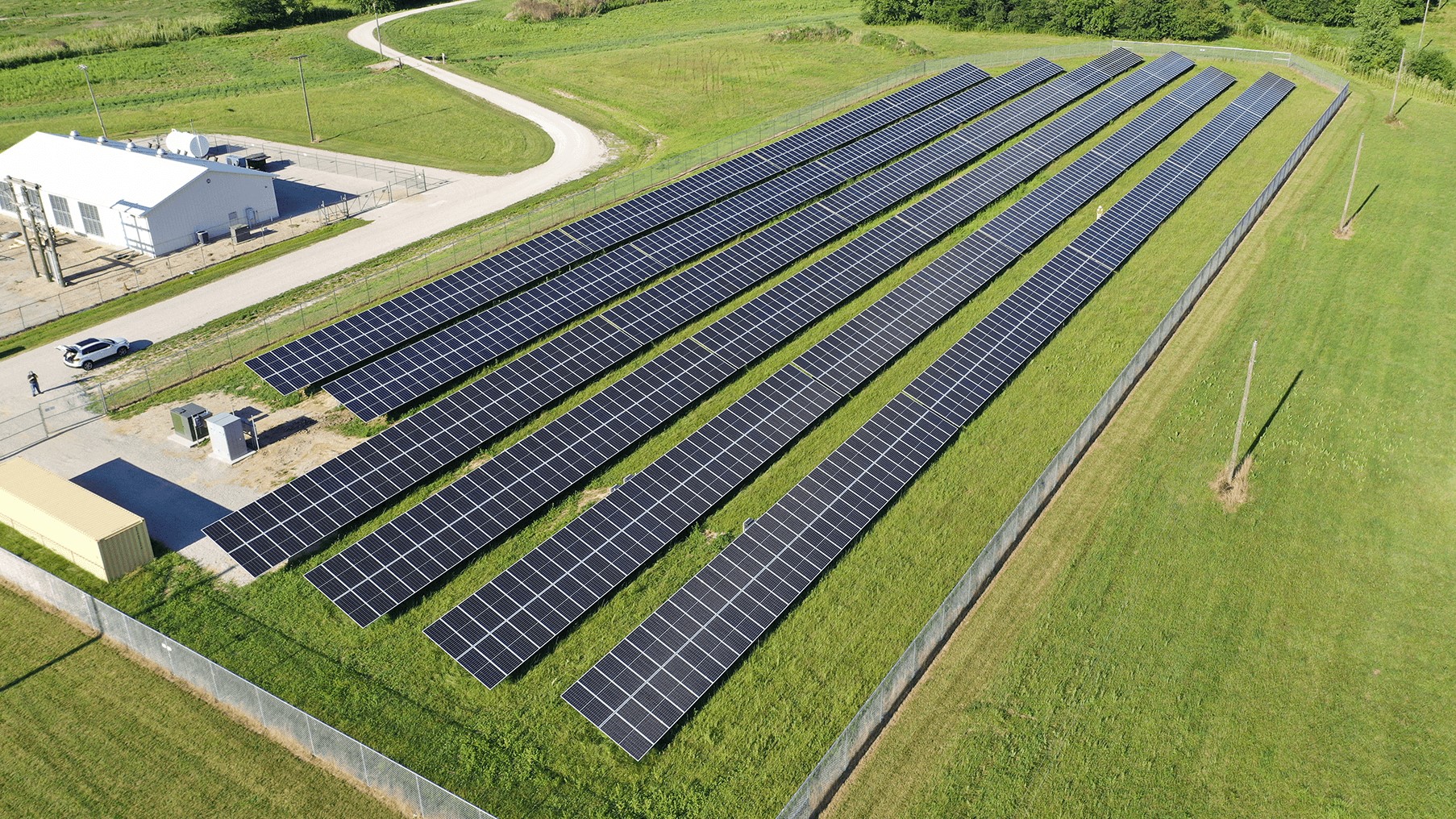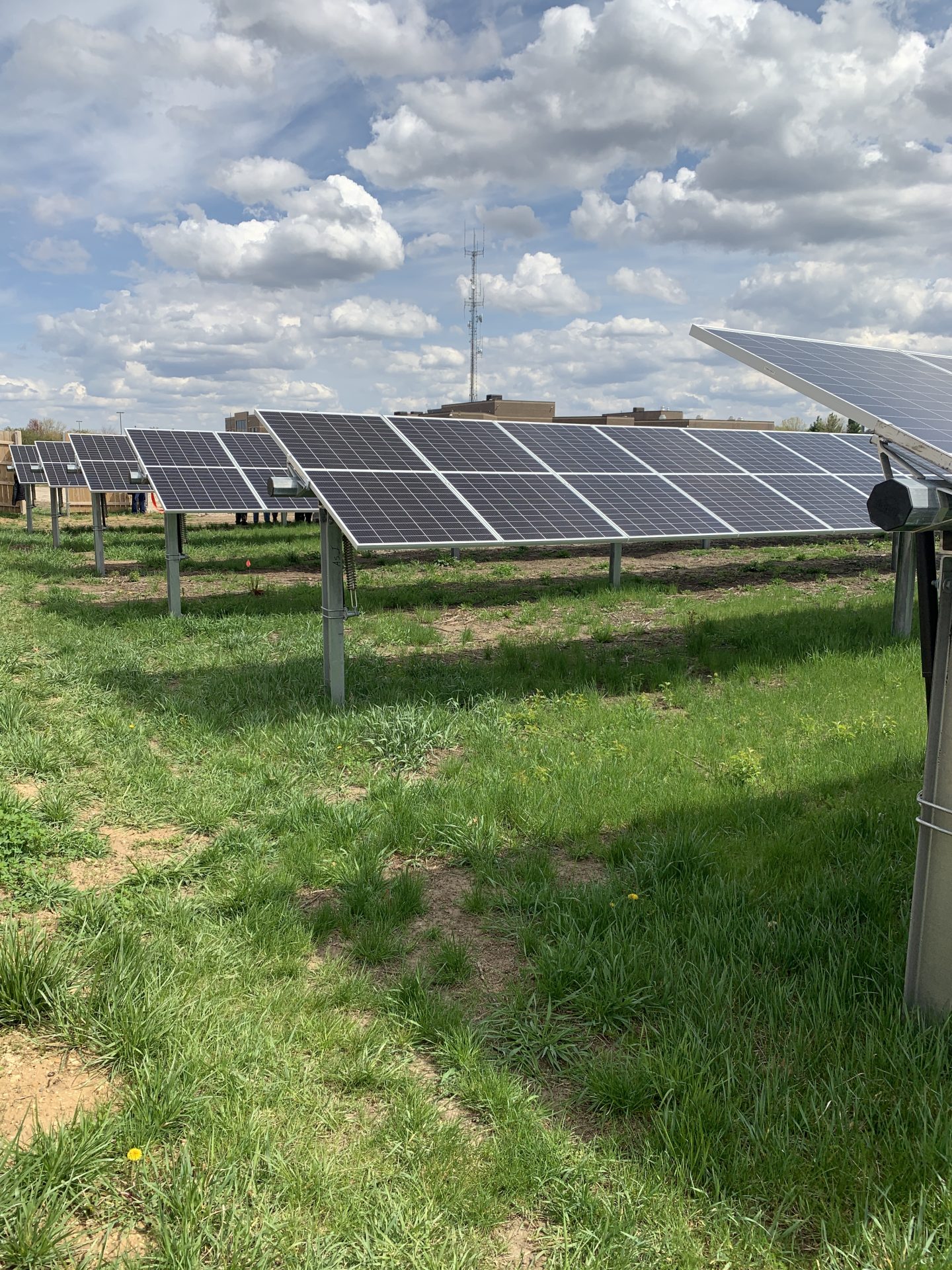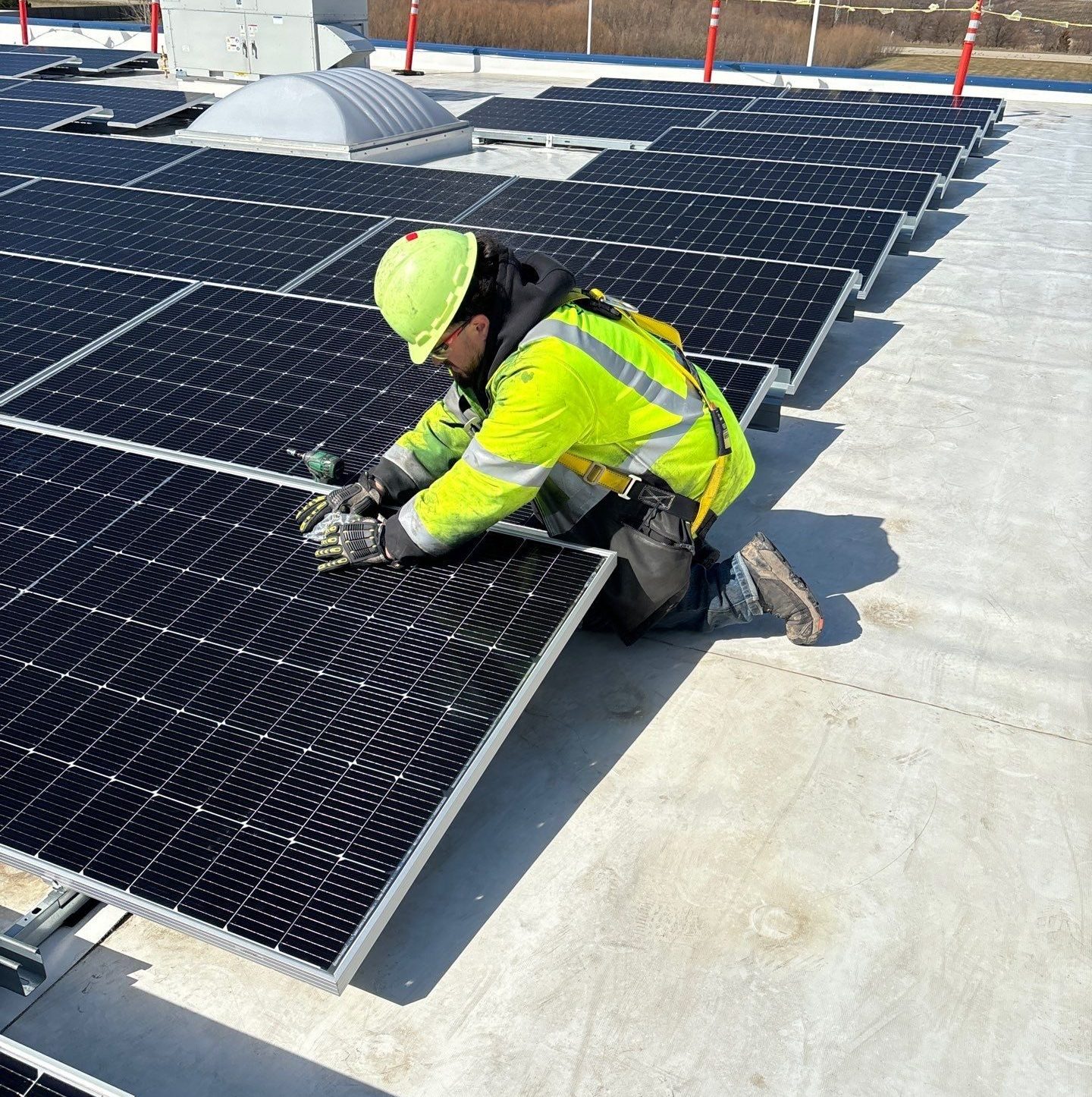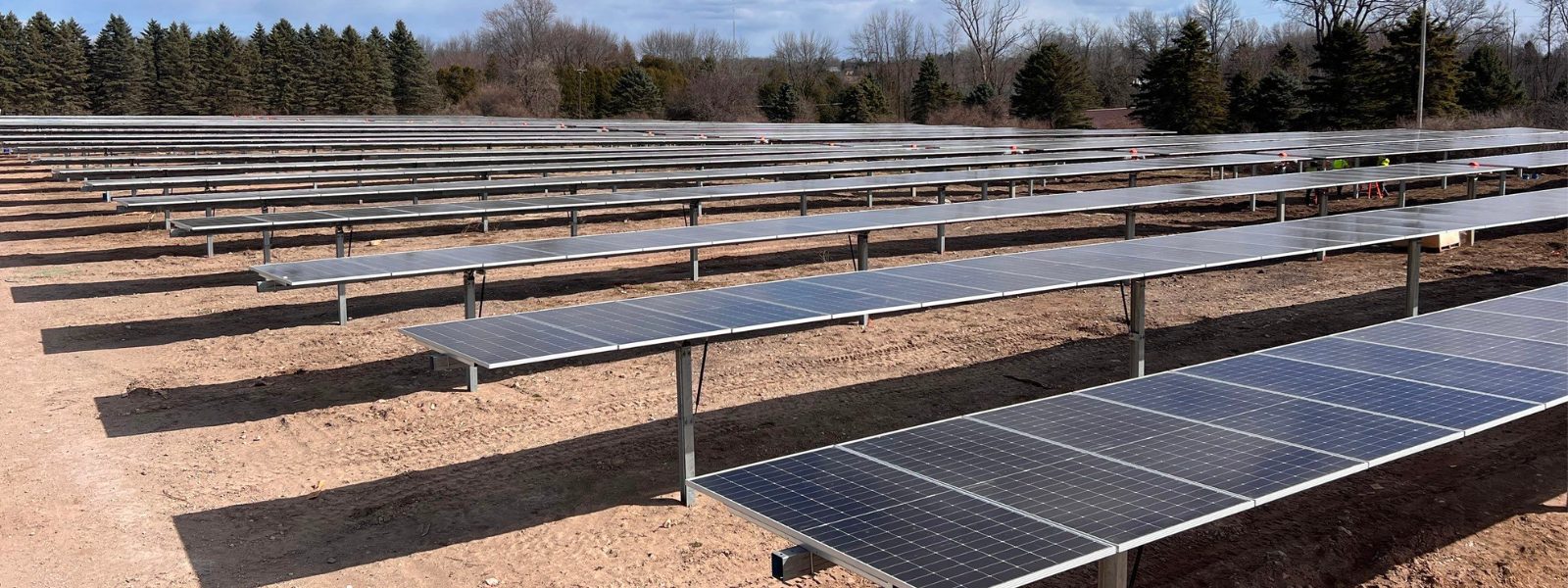Understanding Solar Incentives in Nebraska

Nebraska is becoming a prime location for solar energy, driven by both local and federal incentives that are designed to help businesses and tax-exempt organizations (such as school, churches, and government units) tap into renewable energy’s cost-saving potential. With the right knowledge partner, these entities can maximize their return on investment (ROI) while contributing to a greener future.
Incentives for Solar Energy
Nebraska does not have a statewide solar rebate or incentives program. However, several initiatives and policies can help businesses make the transition to solar power more affordable beyond the savings provided by lower electricity bills.
Local Rebates & Incentives
- OPPD (Omaha Public Power District) offers a solar power incentive program designed to encourage the adoption of solar energy within its service area. This program provides a financial rebate to commercial customers and is calculated based on the size of the solar system installed. These rebates can reduce upfront installation costs, making solar more accessible and cost-effective.
- LES (Lincoln Electric Systems) also offers a robust solar incentive program. Its sustainable energy program provides rebates for commercial customers. The LES rebate offers $375- $475 per kW DC up to 100 KW AC installed depending on the capacity and orientation. LES is also introducing new incentives in 2025 for multi-tenant solar and solar for larger customers (100 KW AC+). Like OPPD, LES’ incentives can help offset installation expenses, allowing organizations to more easily transition to solar energy.

Net Metering
Nebraska utilities offer net metering programs, which allow businesses and schools that generate more power than they use to receive credits for excess energy sent back to the grid. This effectively reduces energy costs by adding credits to customers’ bills, helping organizations lower their overall electricity expenses over time. Net metering can vary, depending on your utility provider.
Investment Tax Credit (ITC)
While state- and utility-level support play an important role, federal incentives offer the most significant savings for businesses looking to go solar in Nebraska.
One of the most impactful incentives available is the Investment Tax Credit (ITC), which allows businesses to deduct 30% of the cost of installing a solar energy system from their federal taxes. In some cases, the ITC can be as high as 50%, depending on the system’s location and domestic materials sourcing. This federal program can dramatically reduce upfront costs, making solar an even more attractive option for organizations seeking long-term energy savings and a reasonable pay-back timeframe.
Modified Accelerated Cost Recovery System (MACRS)
Businesses can also leverage the Modified Accelerated Cost Recovery System (MACRS), which allows them to recover the cost of solar investments through tax deductions over a shortened period of five years. In some cases, businesses can pair MACRS with bonus depreciation to accelerate their savings even further, making solar an appealing financial decision.
USDA Rural Energy for America Program Grants (REAP)
Agricultural producers and rural small businesses can apply for competitive grant funding from the USDA, covering up to 50% of the costs of a renewable energy system.

Center for Rural Affairs Grant (CFRA)
The Center for Rural Affairs was recently awarded $62 million to provide technical assistance and financial support to community, rooftop, and multifamily affordable housing solar projects. This funding will increase the amount of solar energy in the state by more than 60 megawatts (MW) over 5 years.
Federal Grant to the Nebraska Department of Environment and Energy (NDEE)
NDEE was recently awarded a $307 million climate pollution grant from the Environmental Protection Agency (EPA), to be spent over five years. Although program details remain forthcoming, the NDEE has announced that one of its grant focus areas will be solar projects on unused land, ag and industrial facilities, and for solar canopies over feedlots or parking lots.
Solar Incentives for Tax-Exempt Organizations
For schools and nonprofits that are tax-exempt, accessing solar incentives traditionally required creative financing options like Power Purchase Agreements (PPAs) and solar leases. However, in Nebraska, some of these structures are not allowed, limiting financing flexibility. Fortunately, with the passing of the Inflation Reduction Act (IRA), tax-exempt organizations can now fully benefit from the ITC.
The ITC currently provides a 30% credit for solar energy system installations (or potentially higher, depending on the circumstances). This credit has been made more accessible to tax-exempt entities through the introduction of the Direct Pay option. This key update allows schools and nonprofits to receive the ITC value as a direct cash payment from the federal government. Instead of missing out on this tax incentive due to their tax-exempt status, these organizations can now capture the same financial benefits as for-profit businesses—without the need for complex financing structures.
The Direct Pay provision has significantly shifted the landscape for tax-exempt organizations, enabling them to fully leverage federal incentives to reduce the upfront cost of solar installations. By combining this benefit with other available incentives, schools and nonprofits in Nebraska can make the transition to solar energy more affordable and financially rewarding.
The NDEE has announced that another of its focus areas for the $307 million grant from the EPA will be energy and electric upgrades for non-residential facilities including industrial, commercial ag and nonprofit structures.

Making the Most of Solar Incentives
Navigating the complexities of solar incentives can feel overwhelming, but the potential savings make it worth the effort. By taking advantage of both state and federal programs, businesses and tax-exempt organizations can maximize their ROI and minimize the upfront costs of solar installation.
Solar energy offers Nebraska businesses, schools, and nonprofits a powerful way to cut energy costs, enhance sustainability, and support a cleaner environment, all while achieving a strong ROI. By fully leveraging available solar incentives, organizations can maximize their investment while reaping long-term financial benefits.
As the solar landscape in Nebraska continues to evolve, staying informed about incentive programs is crucial for making the most of this opportunity. With the right guidance, your organization can turn solar energy into a valuable tool for both cost savings and environmental impact.
Explore Programs and Start Your Solar Journey
Nelnet Renewable Energy is here to help you navigate incentives and design a solar project tailored to your needs. We pair our nationally ranked solar construction business with specialized knowledge of the above programs. Reach out to us today to learn more about available programs and start your solar journey toward financial and environmental success!
This material is for informational purposes only and is not intended to provide, and should not be relied on, for tax, legal, or investment advice. Investments in solar should be made after due inquiry and consultation with applicable professional advisors.
